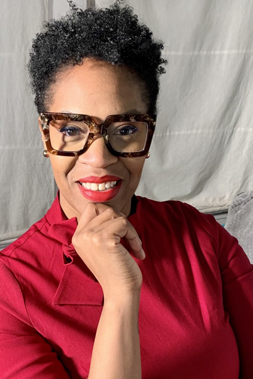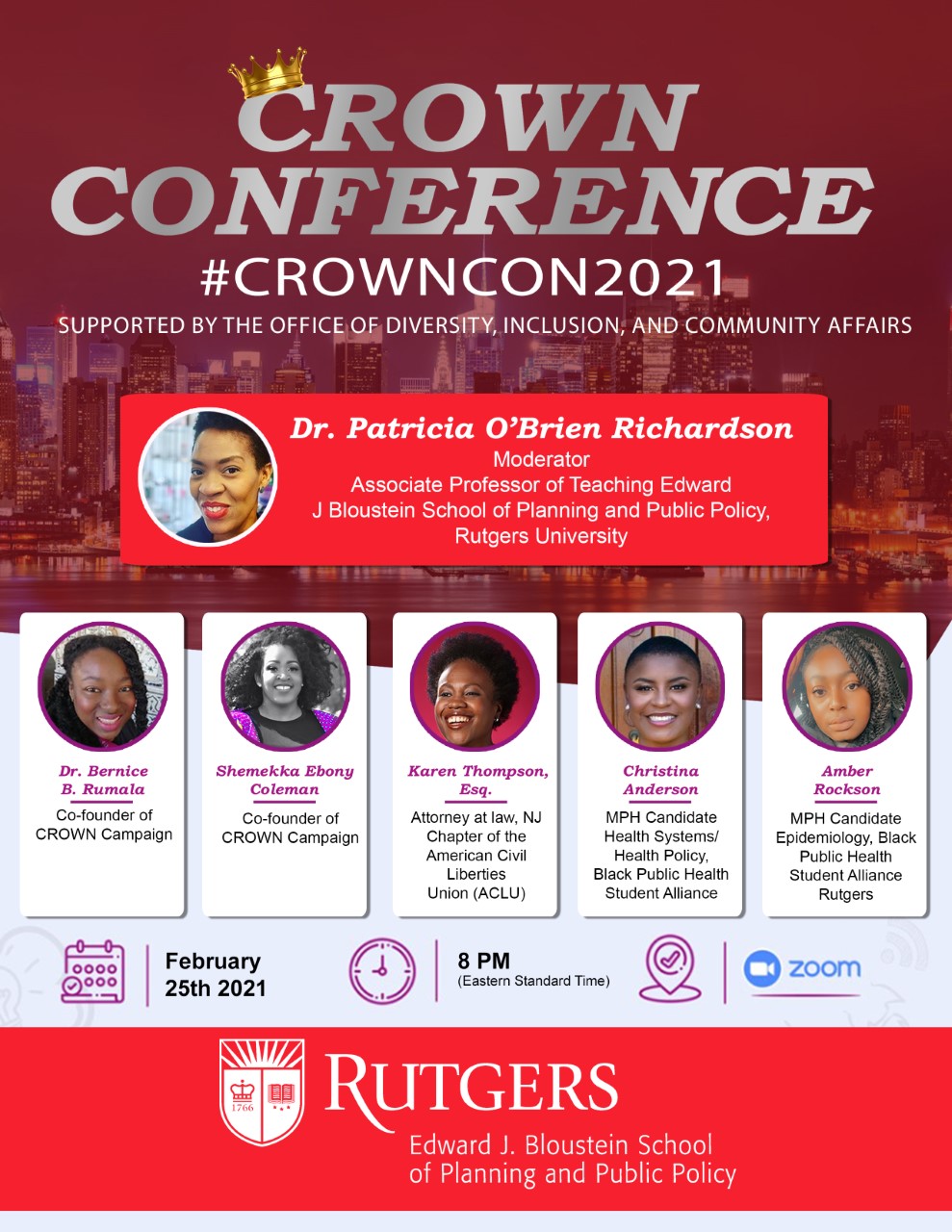
Earlier this year, Patti O’Brien-Richardson was excited to be given the opportunity to mentor the inaugural Cooperman College Scholars at Rutgers-New Brunswick. The initiative is a collaboration between the Rutgers Office of the Chancellor, the Division of Enrollment Management and the Division of Diversity, Inclusion, and Community Engagement.
The Cooperman College Scholars is an initiative funded by Leon and Toby Cooperman that identifies talented students attending public school in Essex County, NJ. The program provides them with last-dollar scholarships of up to $9,000, mentoring, and solid support systems to promote college completion.
Dr. Anna Branch, Senior Vice President for Equity at Rutgers asked Dr. O’Brien-Richardson if she would serve as the first mentor for the inaugural group of scholars. Having met during “Soul Saving Dinners” which she hosted and getting to know each other, Dr. Branch’s selection was based on Dr. O’Brien-Richardson’s desire to see Black and Brown children succeed both in academia and in life.
Dinner discussions revolved around the book The Black Academic’s Guide to Winning Tenure Without Losing Your Mind by Kerry Rockquemore and Tracey A. Laszloffy. Dr. Branch valued the fact that Dr. O’Brien-Richardson had a master’s in urban education and experience with educating seventh through twelfth graders. One could consider the first-year college experience as the thirteenth year of schooling and a continuation of Dr. O’Brien-Richardson’s previous work.
The initial group of ten students are first years attending various schools on the New Brunswick campus. While none of the students are currently enrolled at the Bloustein School, Dr. O’Brien-Richardson hopes that some will find their way to graduate school at Bloustein. Most of her students come from immigrant families and are the first generation to go to college, experiences which they share with Dr. O’Brien-Richardson. “All of my students are intelligent, resilient, highly motivated, and in short, amazing,” she exclaimed.
Studies show that the success of first-generation college students is directly correlated to receiving mentorship, which is what the program seeks to do. Bi-weekly, students meet individually with Dr. O’Brien-Richardson, and the group meets together weekly. As their mentor, she connects the students with leaders of campus services who speak to the group about resources and services that are available to them as students. The director of the Equality Opportunity Fund (EOF), the Director of Financial Aid, and student mental health services officers have all spoken to them.
“These students have never been to campus because of the pandemic so I also try to provide them with quick, virtual campus tours so they can see the community that they are part of,” she said, “I try to provide some focus on Black and Brown places of interest, such as the Sojourner Truth apartments. They have watched the sports teams prepare for games and competitions. All of this is done in the hope of making students who have never been on campus feel connected to Rutgers.”
Dr. O’Brien-Richardson is able to follow her students’ academic progress and connects them to the Learning Center for tutoring as needed. The pandemic magnifies the obstacles faced by these students as computer access, Zoom meetings, and wifi can be difficult to access. Added to these complications is the lack of privacy and a quiet place to study and attend classes in a household where everyone is home because of the pandemic.
When students return to campus in the fall, the scholars will have a scheduled class so that group meetings will be built into student’s schedules. Dr. O’Brien-Richardson is also creating a template for other mentors to follow based on her own experiences with the students this year.

Much of Dr. O’Brien-Richardson professional and academic work explores the social, cultural, and structural factors that influence the health of women and girls of African descent, such as hair. In between her personal, teaching, and mentorship roles, she is organizing and moderating the second annual CROWN Conference to be held on Feb. 25. The event will further the discussion and education of last year’s inaugural conference, “Can Public Policy End Hair Discrimination?“
The CROWN Act (Creating a Respectful and Open World for Naturals) protects the rights of those who choose to wear their hair in natural–just the way it grows–hairstyles such as Afros, braids, twists, and locs, and explains how hair influences the health of people of color.
